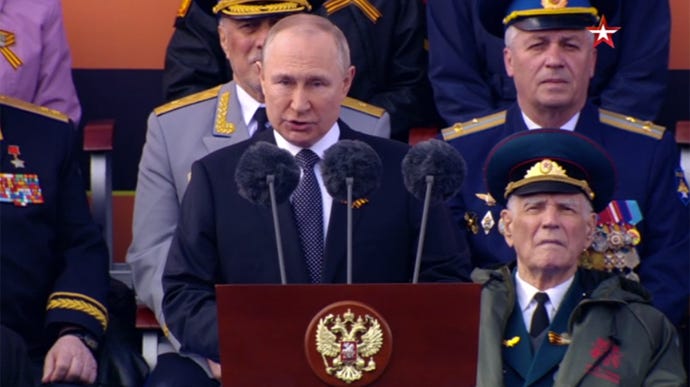A Great Fatherland War Remembered – and Foretold?
Yesterday Russia celebrated Victory Day. The country’s most important national holiday has a long history. It was instituted in 1945 to mark the victory over Nazi Germany - and its allies – in what Russians have always called the Great Fatherland War. That phrase refers specifically to the war between Germany and the Soviet Union from the summer of 1941 to the spring of 1945. What began with a massive Nazi attack – involving about three-and-a-half million troops – ended with total defeat for Berlin and a historic triumph for Moscow, when Soviet armies took the German capital and snuffed out a German regime of outstanding viciousness as well as arrogance. But the price was enormous. Current counts and estimates for Soviet casualties, to name only one indicator, run up to 24 million at least, 11 of which were military.
The significance of the war for Soviet and specifically Russian history cannot be overstated: Germany was explicit about its aim not just to win but to exterminate its opponent. Hence, for the Soviet Union and its people prevailing meant surviving. To lose would have entailed a national catastrophe for which the word defeat would have been entirely inadequate.
In international terms – or let’s be realistic and more precise: in world-historical, all-human-history terms – the Soviet Union made the decisive contribution to destroying Nazi Germany and thus to ripping the heart out of interwar and World War Two fascism. No, that is not a “Russian myth,” that is, actually, an empirical fact. Soviet forces shredded the preponderant share of Nazi divisions.




